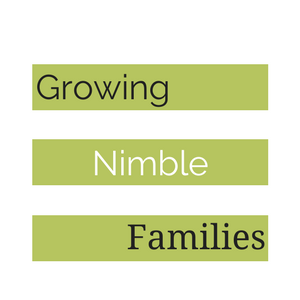
Most of us remember being 11+ as we entered middle or secondary school. That time when we went to big school was like being dropped into the deep end when you can’t swim. Since life has moved on for us we now have our child in this time frame. Just like in every generation middle and secondary school has changed.
This is the start of a mini-series on Things Middle School parents Need to know. It’s not that it wouldn’t work earlier or later but here is a chance for real change to happen. I have one leaving middle school and one just about to start. These are a collection of tips that have supported this huge change. Confront these mental blocks now as in the moment, will you cave and things might not go the way you expect?
It’s gonna go wrong
Failure and mistakes are inevitable. It’s not if but when. There are small failures that teach life lessons and if it’s appropriate we should grab them. We know in our hearts that they should fail but many parents just aren’t allowing natural consequences to happen when there’s an opportunity for learning. We know what’s acceptable. We often mistakenly mix up how we look as parents ( bad if they do it!) instead of letting the lessons of failure teach.
Two resources to support failure and mistakes:
Progress as a better measure for children
What would happen if …
It’s about slowly letting go but being there. We often know 4 or 5 steps ahead what we think almost certainly will happen in many instances during these middle school years.
During elementary ages, we guided things to avoid problems. Now though the learning happens in the questions we ask them. We need to prepare them to think further than right now. That’s the letting go.
It’s not hands-off immediately but showing them how, asking lots of questions especially, ‘What would happen if ..’ to get them thinking the things we know are to come. Since you’re close to see and notice it’s easier to say, ” I have a different solution I can share or I know another way that can work?” we have to steer the ship but not drive it always. We shift from font of all knowledge to an advisor.
This is one of the tricky shifts we experience as parents as in a single interaction we can shift from advisor to font of all knowledge. The response really isn’t an either/ or solution but a what is needed for this time solution. Relationship matters even more so now as we persuade, share and explain situations and middle schoolers examine and counter. So many things can go wrong during this interaction but we must persist in engaging in respectful back and forth.
resources: try this book for a gentle mindset shift for parents
Good options
They need to hear scripts and communication tips that teach them how to respond effectively to disappointment, disagreement and how to disagree appropriately with peers and adults, being home alone, when things get tough and they can’t do it, frustrations, about their bodies and managing their hygiene. Often we try and tell/share in the moment but in that emotional state, it doesn’t work for us or them effectively.
The list of scripts and communication ideas is long but having some reference points will help as they learn to manage their battles. They learn how to effectively and respectfully share their points of view both at home and when with other adults.
resources: How to disagree appropriately + book, Growth mindset,, Sex talk conversations books
Rest
Plan ahead for downtimes: There’s a lot of activities you might see other people doing or you might want to do yourself but there’s just no time once school is on. Plan ahead and schedule downtimes and use some holidays to work together on learning how to do things like making lunch, organising the workspace, and cooking a simple meal. Now is the time for practice, mistakes, practice and eventually getting it.
resources: Life skills 101, life skills ideas, Social life skills or Family life skills challenge
Upper elementary and middle schoolers aren’t all at the same level of maturity and with quite different personalities it’s important to adjust to your family. As parents, there’s a lot of growth and adjustment as well. Above all, it’s all about respecting voices in the family and responding appropriately. Many times these things are picked up by tone and imitation. Many times though it needs to be taught and practised.











